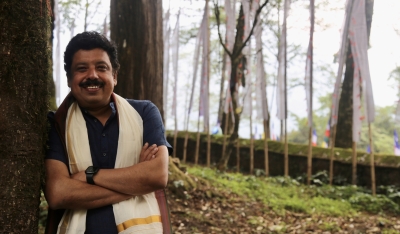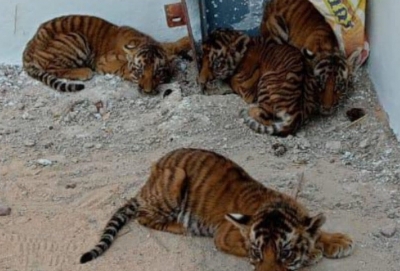
“Why should I have a fear of being misread? This fear can come if we confuse Hinduism as a religion. Let us not forget it is a culture and a cluster of civilisations. This is not the first time someone is reinterpreting mythology. Every Ramayana is different. There are more than 1,000 to 2,000 Mahabhartas. There is nothing like ‘the’ book. We are an all-accepting culture. Every generation will write and rewrite it according to the needs of that generation and the viewpoint of the writer,” he told IANS.<br> <br>He adds: “I never deviate from the plot, and do not put elements that were not there. I just change the perspective of writing, the story and the plot remain similar, it is only the mind of the character that changes. Also, for me, it is important not to adopt a linear narrative. I explore multiple angles.”
His latest book ‘Nala Damyanti’ tells the tale of love from Mahabharata, narrated by Hemanga, the golden swan of Mansarovar.
“It’s an age-old tale, a determined woman fighting the fate that has kept her lover from her. So it is a modern book even though it’s one of the oldest love stories,” says this screenplay writer of many popular television serials who attended the recently concluded Sikkim Art and Literature Festival organised by the state government in collaboration with Teamwork Arts.
Lamenting that there seems to be a tendency to club together authors writing on that era as ‘mythological writers’, Neelakantan says each one’s books are very different. He also stresses that it is important for him to talk about the contemporary through such age-old tales.
“People who can read deeply can immediately grasp the reflection of the present in the ancient tales I tell. As a writer, I should not be expected to spoon-feed.”
Neelakantan feels that in the last few decades, there has been a tendency to oversimplify mythological texts and present a linear perspective.
“Look at the ‘Ramayana’. It was not written with such a streamlined narrative. The intention was not to show that whatever Ram was perfect, but that there are multiple perspectives to everything and how they come forth through different times. Sadly, that has gotten sidelined, and there is such a great loss of all the layers and complexities.”
Preferring to call himself a storyteller, and not limited to one genre, the author says he is not really bothered by language but wants to focus on tales.
“Stories came before languages. Stories are much older than languages and all the stories are oral, they were written down much later. So it shows that storytelling is language neutral. No matter what the format — novels, short stories, or screenplays — I just tell the story,” says the author, admitting that short stories are his favorite medium.
The author who researched and wrote extensively during the Pandemic is also pitching another film.
“There is an audiobook too and two books for children books as well. Besides, a self-help book, I am compiling my research on Krishna. There is also a book about the Tamil Puranas on the cards,” he concludes.
(Sukant Deepak can be contacted at sukant.d@ians.in)
–IANS<br>sukant/pgh










